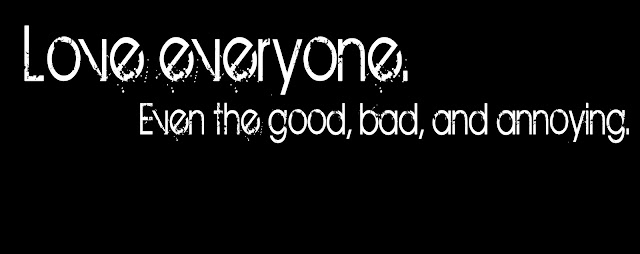Friday, October 22, 2021
Even the Good, the Bad, and the Annoying!
Monday, October 11, 2021
My husband and I watched a limited series this weekend entitled, Little Fires Everywhere. Peace and harmony may be the goal for most families, but dysfunction is common and insidious and arrives in many forms. Family quarrels, grudges, and estrangements can have lasting effects, sometimes following members into old age. When one family member contends with a problem such as mental illness or alcohol, the entire household is impacted. In a dysfunctional home, there is normally no sense of unity or empathy or boundaries, and members can be highly critical of one another. This is what happened in this series when the mother decided what was correct for all members of her family and not acknowledging that each person within the family unit is individual in thought, action, and deed.
I realize after years and years of rationalization, my mother did not love me, let alone like me. My brothers did no wrong and received her love and devotion. The reason why some mothers hate their daughters is their dissatisfaction with their own lives.
Mothers are also the women who lived in an unequal society and were forced to do things that they never wanted to. Some mothers were forced to quit their studies and get married early. As I understand the history of my mother, it has assisted in my own healing. I see brothers who married the same dynamic as my mother; gossip, lying, living for appearance, adultery, and an exaggerated state of "perfection". The brothers allow the bad behavior because of fear of having a collapsed family like the one we grew up in. Of course, they would never defend me from the wrath of their wives and for me, that is a show of character no better than the family dynamic I grew up in.
But the important question that arises here is that is it right to blame the daughters? Is it right for the mothers to reinstate the patriarchal norms in their daughters’ life? Is it the daughter who should bear the guilt of her mother’s oppression, or the patriarchal institution? Yes, it was unfair that a mother was forced to change her choices and live a life that doesn’t value her self-respect and happiness. But it is equally unfair that the daughter is being punished for the wrong that she never did. She was not even there when her mother had undergone all the tribulations because of her gender. And now when it is the daughter’s turn to fight the gender stereotypes, she is conflicted and bewildered because her mother embodies the biggest barrier in her life. If a daughter cannot expect love, support, and encouragement from her mother, will she be confident enough to step out in the world? If a daughter is oppressed, controlled, and hated by her mother, will she be able to expect equality and respect from others? Where should she even start or end her fight when patriarchy thrives at home itself?
I may not be the "perfect religious" being, I may rebel, I might stand up for the underdog, I work hard, I love hard, I love my children as the individuals they are, and I do not pretend to be "perfect" because I am not. But what I am is an important part and a dignified member of my family, even if they do not wish me to be a part of the family. So dear mothers, please don’t resent your daughters. It is right to be dissatisfied or even angry with life and people that didn’t pay heed to your choices. It is never too late to raise your voice and slam your perpetrator (and all of those who assisted her). Because injustice is wrong, even if it happened decades ago. But then you must vent out your reaction in the right direction. And pointing it towards your daughter is not right. In the fight against gender inequality, the worst thing to do is to impose on your daughter or any other woman the same restrictions and hatred that you faced as a woman. It will only encourage injustice and women’s oppression rather than opposing them.
Rather than hating your daughters, raise them into feminists who will oppose every restriction and oppression that comes their way. Be the feminist yourself who has the will to raise your voice against the wrong done today or years ago. And who is proud of her gender and doesn’t perceive it as subordinate. Even though motherhood wasn’t your choice, make it a way to raise a generation where a woman will not bear the burden of unwanted pregnancy and imposed life choices.

